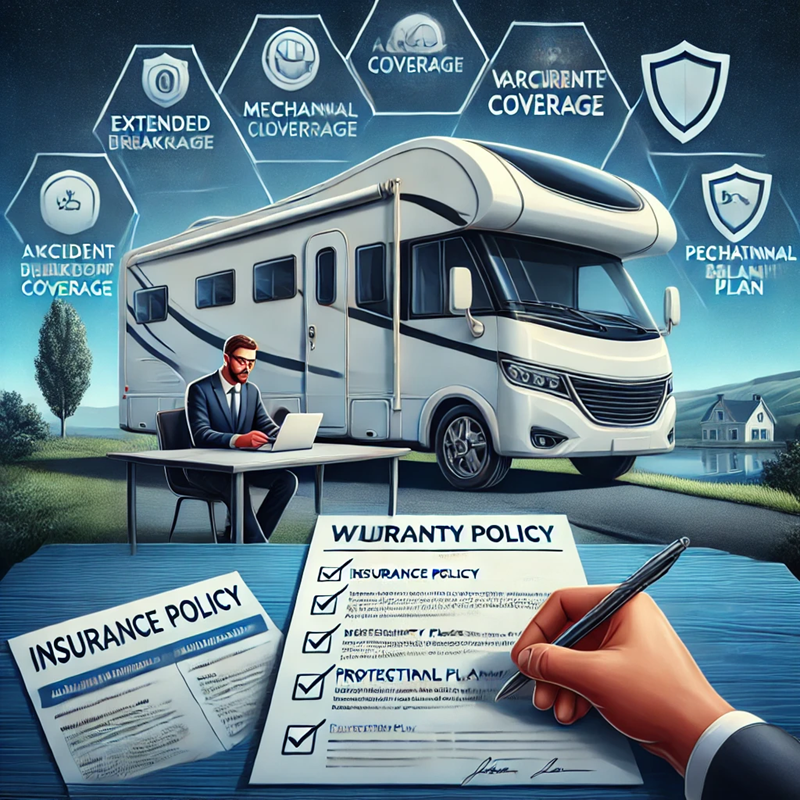Buying a motorhome is an exciting investment that requires careful planning to ensure you make the right choice. Over the course of this series, we have covered essential steps to guide you through the purchasing process. Let’s take a moment to reflect on what we have covered so far before delving into Step Seven: Considering Insurance and Warranty Options.
In Step One, we focused on determining a budget that includes not just the purchase price but also ongoing expenses such as insurance, maintenance, and fuel. Step Two emphasized the importance of assessing your travel needs to ensure you choose a motorhome that aligns with your lifestyle and comfort requirements.
Moving forward, Step Three explored different motorhome types, from the luxurious Class A models to the compact campervans, helping you understand which type suits your preferences. Step Four guided you through the decision between purchasing a new or used motorhome, weighing factors such as depreciation, warranty coverage, and upfront costs.
In Step Five, we highlighted the importance of thoroughly inspecting and test-driving a motorhome before purchase, checking the engine, plumbing, appliances, and overall structural integrity. Step Six then emphasized the need to review a used motorhome’s history, examining service records, accident reports, and past ownership details to avoid potential red flags.

With these crucial steps behind us, it is now time to explore Step Seven: Understanding insurance and warranty options. This step ensures that your investment is protected from unexpected costs and issues that may arise during ownership.
Why Insurance and Warranty Coverage Matter?
Owning a motorhome comes with inherent risks, such as breakdowns, accidents, theft, and weather damage. Having the right insurance and warranty coverage can safeguard you from significant financial losses and provide peace of mind while traveling.
Motorhome insurance differs from standard car insurance due to the unique risks associated with recreational vehicles. There are different types of insurance policies available depending on how you intend to use your motorhome. Comprehensive insurance provides coverage for damage caused by accidents, fire, theft, vandalism, and natural disasters. Third-party insurance covers damage caused to other people’s vehicles or property but does not cover damage to your own motorhome. Breakdown cover ensures roadside assistance in case of mechanical failure. Full-time RV insurance is specifically designed for those who live in their motorhome full-time, offering extended coverage for personal belongings and liability. Storage insurance covers your motorhome while it is not in use.